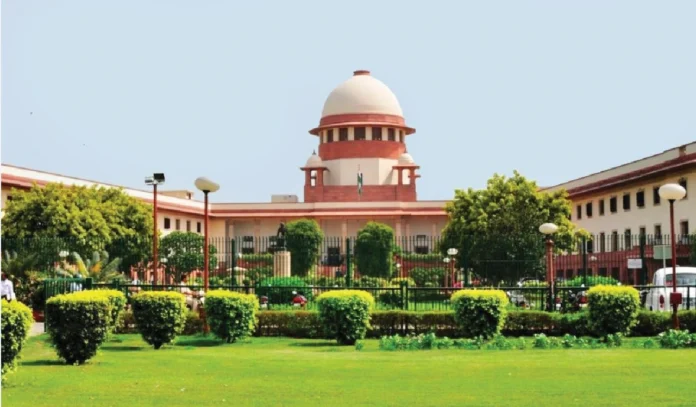By Vikram Kilpady
In a significant interim relief for petitioners, the Supreme Court has recorded an assurance from Solicitor General Tushar Mehta that the controversial provisions of the Waqf (Amendment) Act 2025 will not be implemented until the next hearing on May 5. The centre will not appoint members to Waqf Boards and Councils, nor alter the status of waqf-by-user properties in the interim.
A bench comprising Chief Justice of India (CJI) Sanjiv Khanna and Justices PV Sanjay Kumar and KV Viswanathan took Mehta’s assurance on record, giving the centre seven days to file a reply and petitioners five days to submit rejoinders. The Court designated five lead petitions—filed by Arshad Madani, Muhammad Jameel Merchant, Mohammed Fazlurrahim & Anr, Sheikh Noorul Hassan, and Asaduddin Owaisi—while all others will be treated as intervention or impleadment applications.
The Waqf (Amendment) Act, cleared by Parliament and signed by the President in early April, seeks to regulate nearly 9 lakh waqf properties across India, including over 4 lakh “waqf-by-user” sites such as mosques, dargahs and cemeteries lacking formal documentation, but in continuous religious use.
Petitioners argue the Act disproportionately targets Muslim endowments, infringes upon the community’s constitutional right to manage its religious affairs, and gives excessive authority to revenue officials like district collectors to redefine waqf status—effectively undermining centuries of established religious usage.
CJI Khanna noted the historical complexity of such properties: “Before the British came, we did not have any registration or Transfer of Property Act. Many masjids date back to the 14th or 15th century. Suppose Jama Masjid—should we now seek documents for that?”
The apex court sharply questioned the logic of authorizing district collectors to determine waqf status: “The moment the collector starts deciding it, it stops being waqf. Is it fair?” asked the bench.
Another contentious provision allows appointment of non-Muslims to State Waqf Boards and the Central Waqf Council, drawing widespread protests. When SG Mehta defended the composition, the CJI retorted: “When we sit over here, we lose our religion. For us, both sides are the same. Why not have Muslims also in the advisory board of Hindu endowments then?”
The Waqf Amendment Act has not only sparked legal challenges, but also unrest. In Murshidabad, West Bengal, protests turned violent, resulting in three deaths and over 200 arrests.
The petitioners’ legal team includes heavyweights like Kapil Sibal, Abhishek Manu Singhvi, CU Singh, and Rajeev Dhavan. They argue the Act violates fundamental rights and allows undue state interference in religious matters. Among their concerns is the reclassification of properties without registration as non-waqf, a move that could strip centuries-old religious sites of protection.
The centre, supported by the BJP-ruled states such as Maharashtra, Rajasthan and Madhya Pradesh, argues the law was enacted after detailed deliberations by a Joint Parliamentary Committee and that registration requirements already existed under the 1995 Waqf Act.
While the Court clarified that the May 5 hearing will be limited to directions and interim orders, its observations suggest a willingness to preserve the religious and historical status quo pending detailed arguments.


